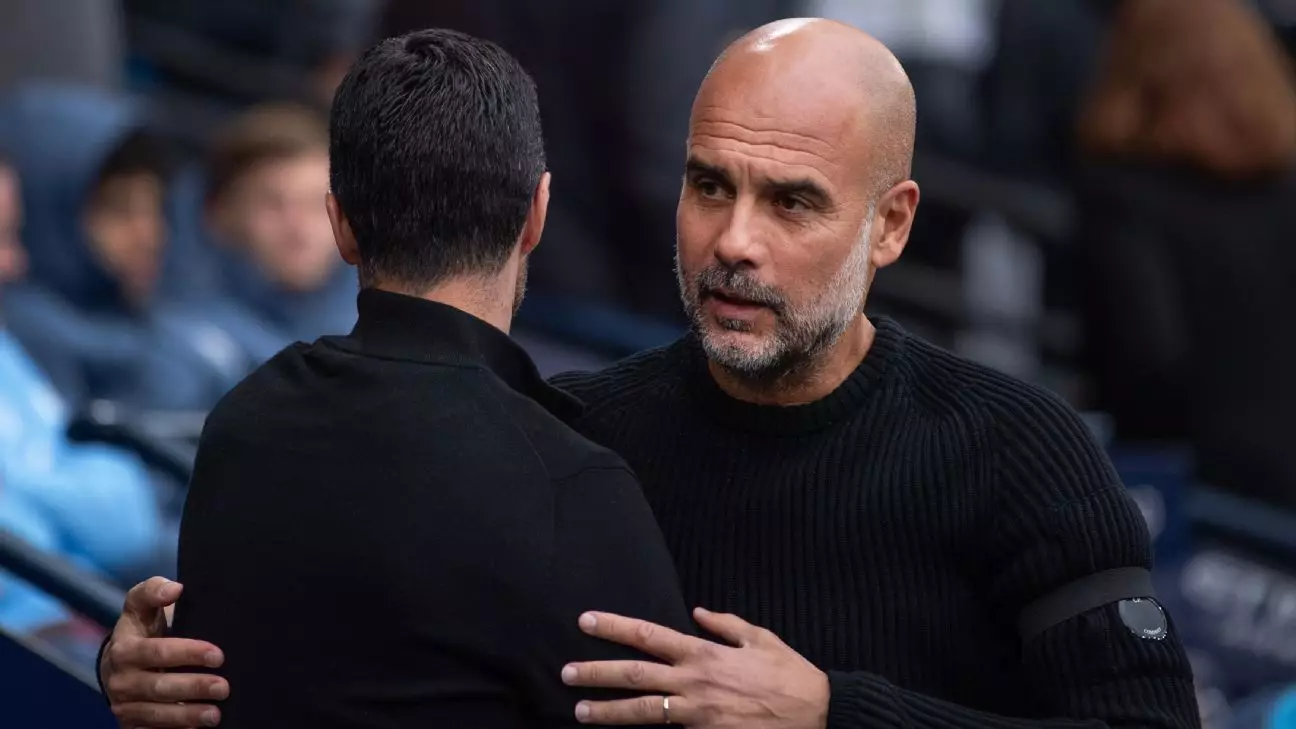In the world of football, rivalries are not merely a part of the game; they are often the lifeblood of competitive spirit. Recent remarks exchanged between Manchester City’s Pep Guardiola and Arsenal’s Mikel Arteta have thrown the intensity of their rivalry into the spotlight. The backdrop for this discourse is a recent 2-2 draw at the Etihad Stadium where the match showcased not just skill but also the strategic maneuvering typical of high-stakes encounters. After City players accused Arsenal of employing “dark arts,” Arteta’s cryptic response to a reporter raised eyebrows, hinting that he possesses insider knowledge from his time working alongside Guardiola.
Arteta’s comment, suggesting he has “all the information,” was an intriguing jab at his former mentor. His subtle implication seemed rather pointed, insinuating that Manchester City might be guilty of the same tactics he subtly critiqued. However, Guardiola’s rebuttal demanded clarity in Arteta’s statements, reflecting the cautious yet competitive nature of both managers. Guardiola, known for his articulate nature, responded with a challenge for Arteta to be more explicit. This back-and-forth hints at the deeper undercurrents of competition—a blend of professional respect and tactical probing that characterizes the relationship between the two former allies.
The emotional weight of such encounters cannot be overstated; they lay at the intersection of professionalism and raw human emotion. Guardiola’s openness in discussing a potential ‘war’ on the pitch demonstrates not only an acknowledgment of the fiery nature of rival contests but also a willingness to engage in the mental battle that accompanies the physicality of football. The ensuing battles have stirred narratives that resonate well beyond the football field, showcasing how each manager navigates the fine line between rivalry and sportsmanship.
As Guardiola pointed out, the relationship between the two clubs has shifted from camaraderie to contention over recent Premier League seasons. Such dynamics are emblematic of elite football, where the stakes are incredibly high, and the passions of players, managers, and fans intertwine. The enticing nature of competition fuels the adrenaline on the pitch but also creates friction off it. Both managers have made it clear that while winning is the ultimate goal, the relationship between them remains respectful, at least publicly.
Ultimately, this rivalry speaks to broader themes in sports, illustrating how personal relationships can be recreated and redefined in competitive contexts. Arteta’s time under Guardiola’s tutelage has undoubtedly flavored his managerial approach and philosophy, yet as competitors, both seem to thrive in the tension of their mutual pursuit for supremacy. The footballing community watches eagerly, not just for the outcome of matches, but for the narrative that unfolds through the rivalry—a social tapestry woven with ambition, respect, and the ever-elusive quest for greatness.

